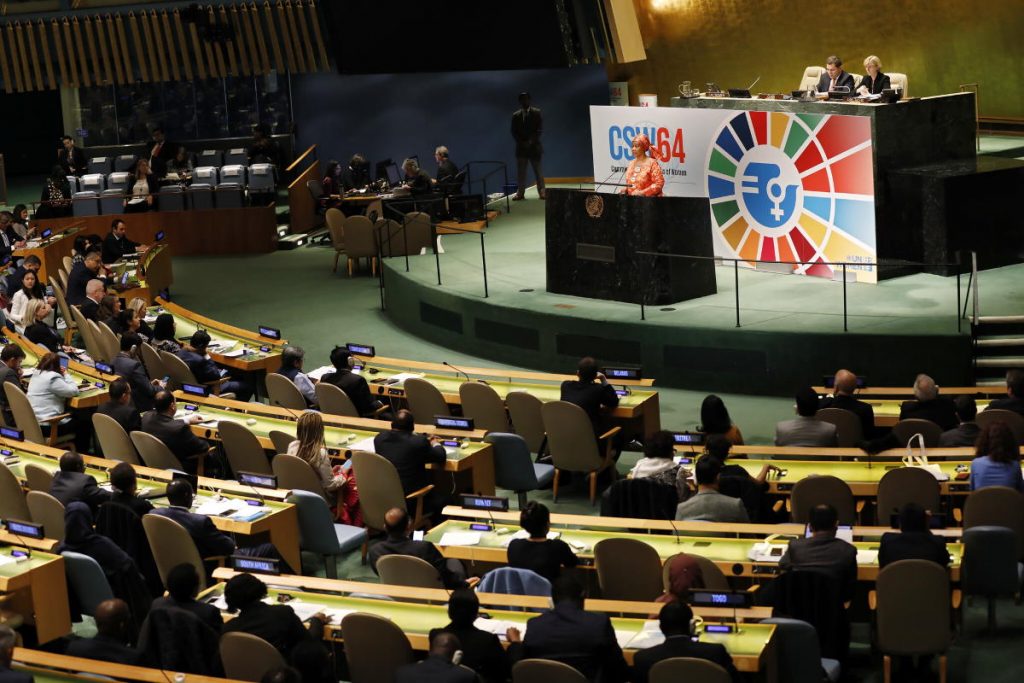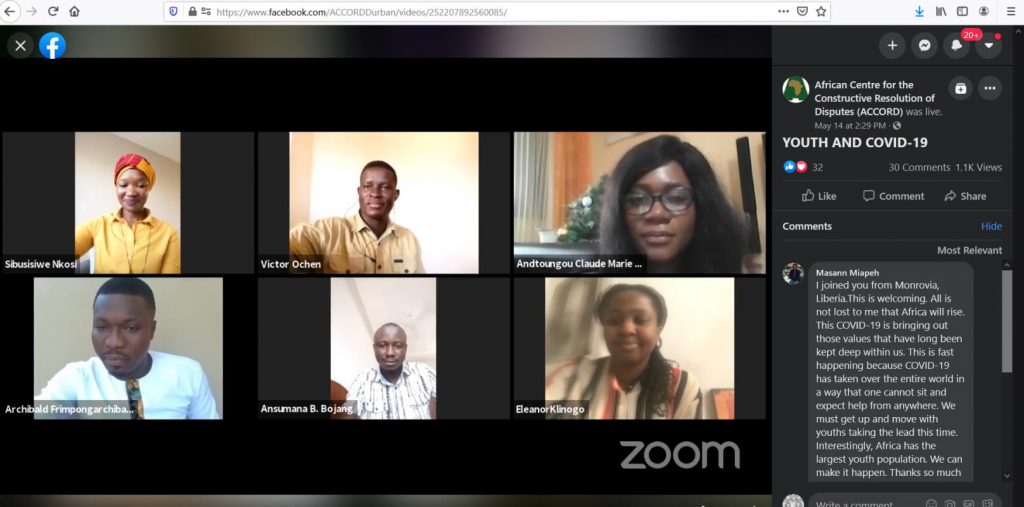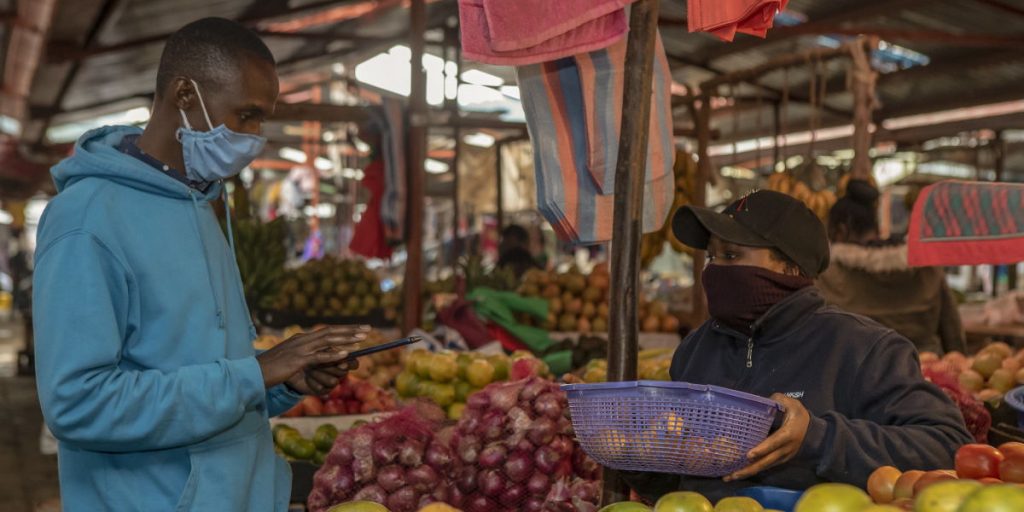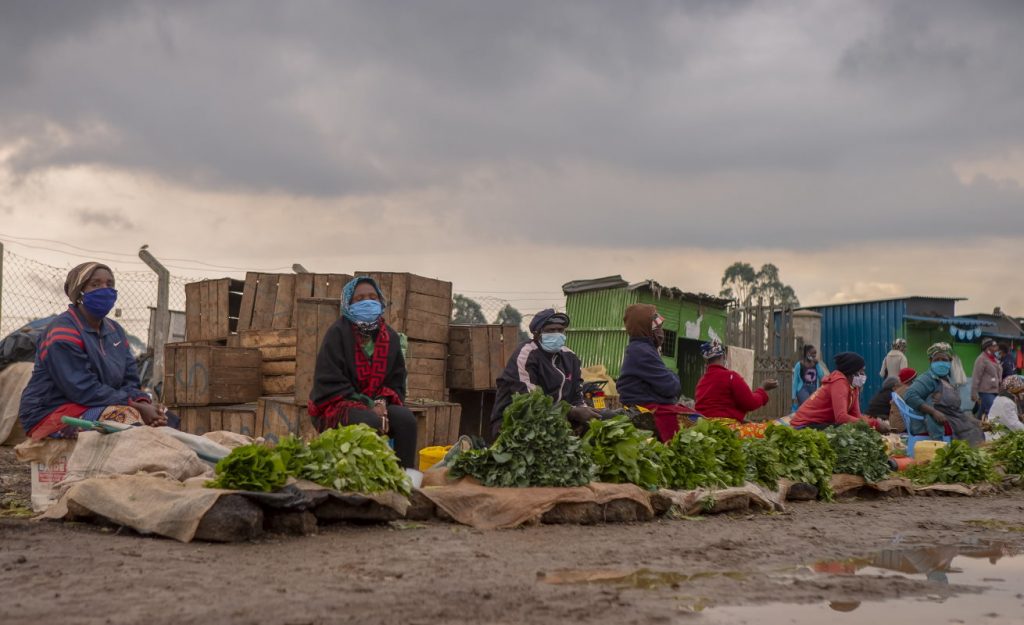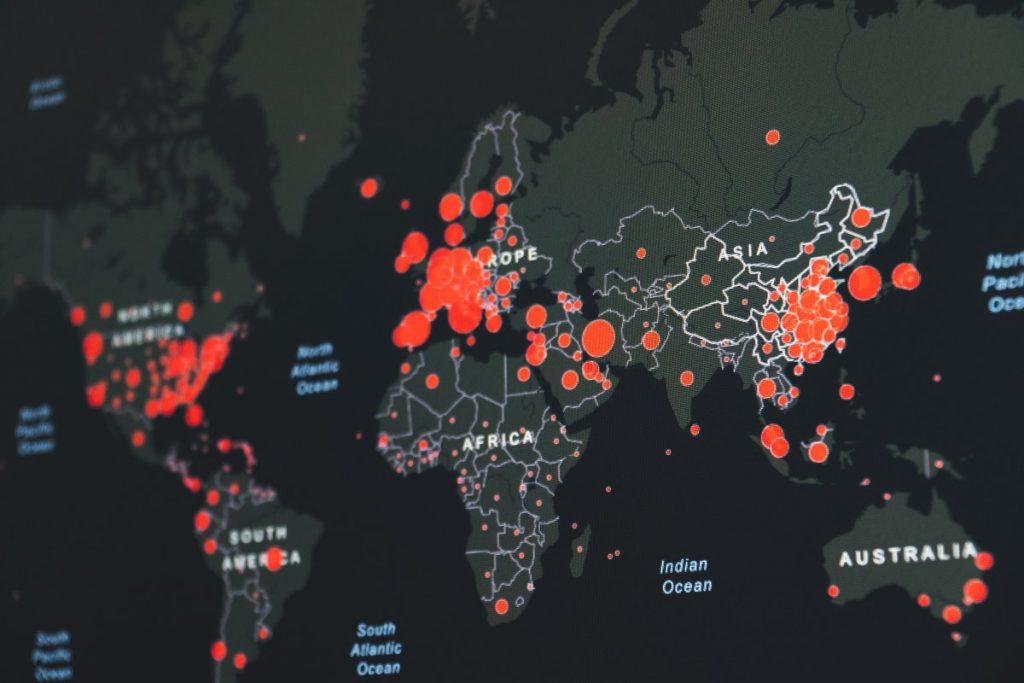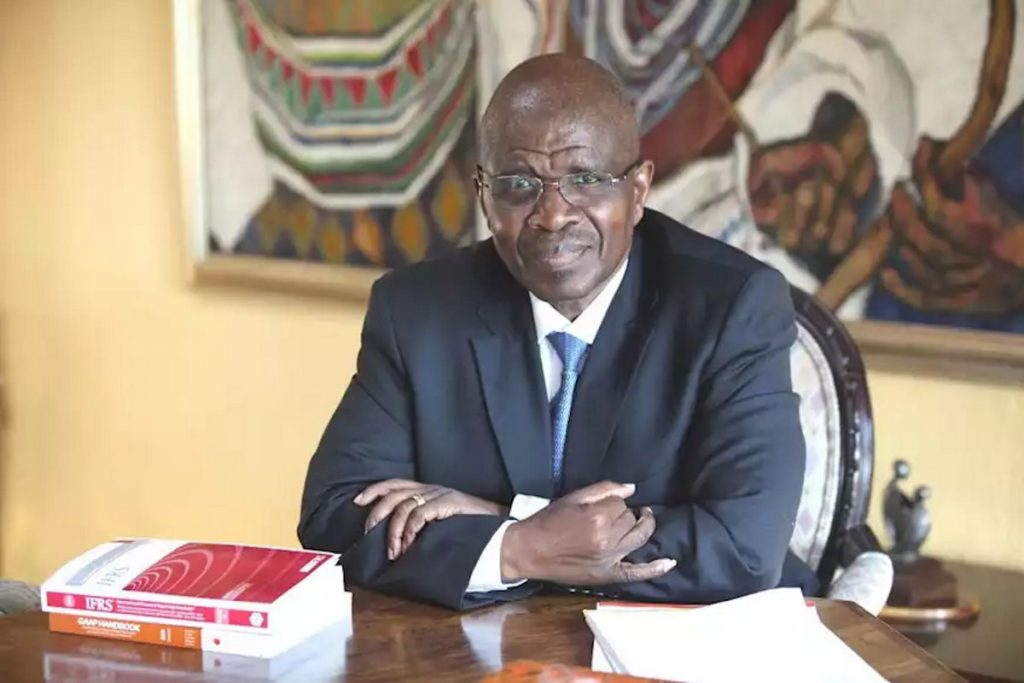ACCORD Programme
COVID-19 & Conflict
ACCORD has rapidly adapted to the new COVID-19 reality and has refocused and restructured a significant proportion of its staff and effort on identifying & monitoring, tracking & analysing, and preparing & responding to COVID-19 related social unrest and violent conflict in Africa.
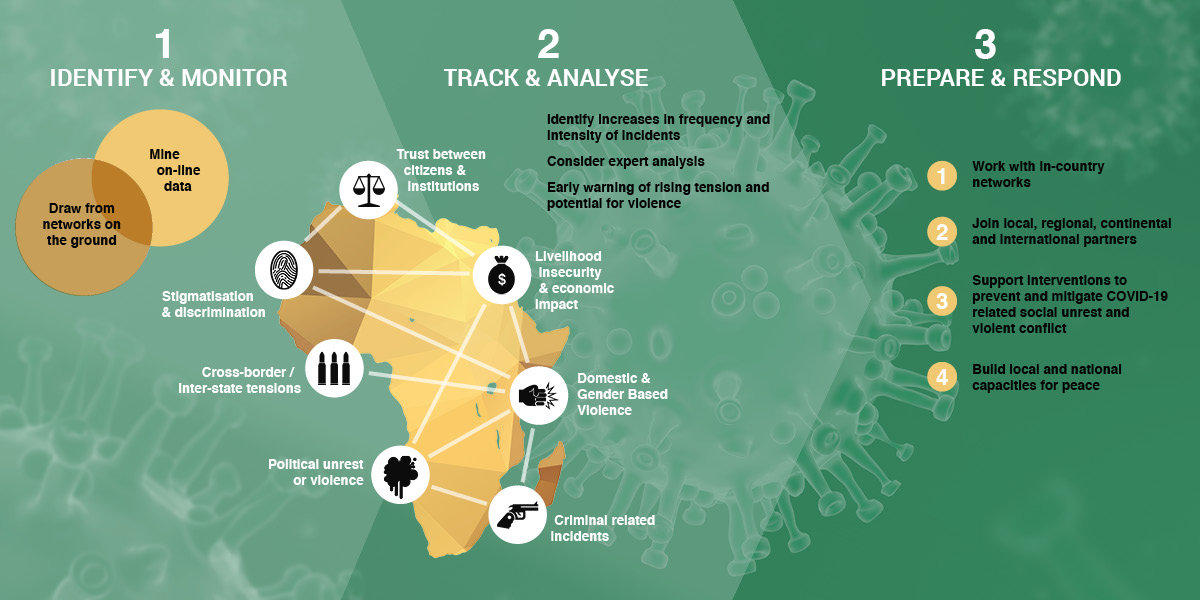
ACCORD’s focus on COVID-19
ACCORD has adapted to the new COVID-19 reality, refocusing and restructuring a significant proportion of its staff and its effort on identifying & monitoring, tracking &, analysing, and preparing & responding to COVID-19 related social-unrest and violent conflict in Africa.
Through our networks across Africa, and supported by available online data, ACCORD identifies COVID-19 related incidents and trends that may provide early warning of rising tensions that could develop into social unrest and violent conflict. Once the incidents are captured in the dataset, ACCORD analyses the trends and publishes a weekly COVID-19 Africa Conflict and Resilience Monitor, in order to share the information and analysis with all stakeholders.
ACCORD then works with its in-country networks and other local, regional, continental and international partners and stakeholders, to encourage and support interventions aimed at mitigating, and where possible preventing, COVID-19 related social unrest and violent conflict.
Conflict & Resilience Monitor
17 Dec 2025

In the final edition of the Monitor for 2025, Cedric de Coning writes about the importance of Africa developing its own geopolitical strategy. As the world divides itself into spheres of influence, it is important for Africa to develop its own approach and strategy to best represent itself and its interests, especially in light of current global shifts in international relations.
This is followed by an article from Keenan B. Govender who reflects on the recent coup d’état in Madagascar. His article discusses theories of leadership and the shortcomings of Madagascar’s leaders that led to the recent coup. Madagascar’s former president, Andry Rajoelina, lost power in the same manner that he gained it, which was through a coup. Rajoelina failed to maintain the legitimacy of his presidency, which ultimately led to history repeating itself.
Shaun Kinnes writes about the nexus between climate change and organised crime. While climate change does not cause organised crime, nor does organised crime cause climate change, the effects of climate change shape the conditions that make societies more vulnerable to organised crime.
Finally, Katharine Bebington reviews the past year’s most significant peace and security related events in Africa. Her article covers the elections that took place, the coups d’état, the ongoing conflicts in various parts of the continent and the impact that shifts in geopolitics have had in Africa in 2025.
Feature Articles

Africa Needs a Geopolitical Strategy and Global Engagement Policy
- Cedric de Coning
A new global order, characterised by hemispherical competition is emerging between the USA, Europe, the Indio-Pacific, the Middle East and Africa. Africa must actively position itself within this evolving landscape, or risk being marginalised.

Madagascar’s Leadership Crisis and the Return of the Unconstitutional
- Keenan Govender
Madagascar’s currently unfolding political crisis, is not an aberration, it is the latest episode in a long experiment with authority, leadership legitimacy, and the fragile architecture of democracy

The Climate-Crime Nexus: The Intertwining of Climate Change and Organised Crime as a Threat Multiplier
- Shaun Kinnes
Climate change has proven itself to be one of the most complex and interconnected challenges humanity will have to grapple with in the 21st century
COVID-19 News
An introduction to Novel coronavirus (2019-nCoV)
ACCORD is an African based global conflict management institution and think tank with nearly 30 years of experience.
The COVID-19 crisis had disrupted ACCORD’s usual work, but the Institution has rapidly adapted and it has now refocused and restructured a significant proportion of its staff and effort on identifying & monitoring, tracking &, analysing and responding to the COVID-19 related social-unrest and violent conflict in Africa.
Local Contact?
If you are able to share information from your experiences on the ground with the crisis in Africa, we'd really like to hear from you. Please get in touch!

